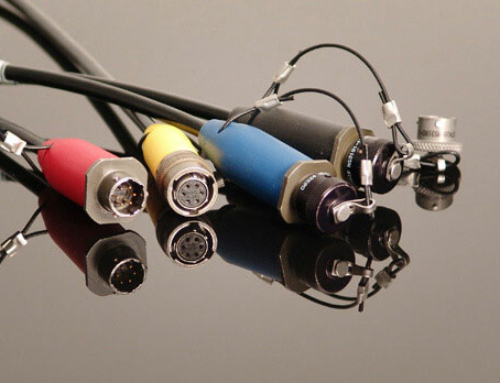Having a strong identity in the manufacturing industry is important for any company. In today’s highly competitive environment, it takes more than just quality products to stand out. Manufacturing branding is an essential part of any successful marketing strategy, as it helps to create a unique and recognizable image for your company.
Understanding the principles of manufacturing branding can help you build a strong presence in the industry and increase customer and brand loyalty. Here, we’ll explore the basics of effective manufacturing branding and discuss how to create an impactful identity within the manufacturing industry.
What is Branding in Manufacturing?
Manufacturing branding is a set of strategies used to create and promote a unique and recognizable identity for a business in the manufacturing industry. It encompasses everything from developing a strong logo and messaging to creating marketing campaigns that showcase the company’s products and services. Branding in manufacturing helps to boost the visibility of a company and helps market its products to the right audience.
What Separates Manufacturers Brands from Private Brands
The main difference between manufacturers’ and private brands is that manufacturers are typically responsible for their products’ design, production, and distribution. In contrast, private brands focus more on marketing and selling a product. Manufacturers strive to create an identity distinct from the competition – primarily through product features, design, and customer service. On the other hand, private brands rely more heavily on marketing tactics such as pricing, promotion, and brand recognition.
7 Advantages Of Making a Manufacturing Brand
Establishing a manufacturing brand offers numerous advantages that can propel your business to new heights. From enhanced recognition and differentiation to increased customer trust and loyalty, a strong brand identity sets you apart from competitors and opens doors to new opportunities. By leveraging the power of branding, you can command premium prices, expand your market reach, give quality customer support and create a foundation for long-term business growth.
1. Enhanced Recognition and Differentiation
By creating a brand personality for a manufacturing brand, you can establish a unique identity that distinguishes you from competitors. A strong brand identity helps customers recognize and remember your products, making it easier for them to choose your brand over others. This advantage is crucial in a crowded market where differentiation is key to success.
2. Increased Customer Trust and Loyalty
A well-established manufacturing brand builds trust and credibility with customers. Customers who recognize your brand and associate it with quality are more likely to trust your products and become loyal advocates. This trust and loyalty lead to repeat purchases, positive word-of-mouth referrals, and long-term customer relationships.
3. Competitive Edge in the Market
In a competitive market, having a strong manufacturing brand gives you a significant edge over competitors. A well-known brand can attract customers willing to pay a premium for your products’ perceived quality and reliability. This advantage helps you stand out and capture a larger market share.
4. Improved Perceived Value
A solid manufacturing brand allows you to position your products or services as premium offerings, increasing their perceived value in customers’ eyes. Customers who perceive your brand as high-quality are more willing to pay higher prices, leading to increased profitability and revenue growth.
5. Expanded Market Reach
A strong manufacturing brand opens doors to new opportunities by attracting customers who may not have considered your products. With an established manufacturer brand, you can expand into new markets, reach new demographics, and tap into previously untapped customer segments. This advantage allows for business growth and increased market share.
6. Higher Pricing Potential
A well-known manufacturing brand allows you to command premium prices for your products or services. Customers often pay more for a trusted brand with superior quality and reliability. This advantage allows you to increase profit margins and invest in further product development and innovation.
7. Long-Term Business Growth
Building a manufacturing brand is an investment in the long-term success of your business. A strong brand creates customer loyalty, attracts new customers, and differentiates you from competitors. By consistently delivering on your brand promise, you can build a reputation that withstands market fluctuations and economic challenges, ensuring sustainable growth for your business.
Top 6 Manufacturing Branding Strategies
Define Your Brand Identity
The first step in manufacturing branding is to define your brand identity. This involves creating a clear and compelling brand image that resonates with your target audience. Determine your brand values, mission, and unique selling proposition (USP) to differentiate yourself from competitors. Develop a brand story that connects emotionally with customers and communicates the essence of your brand.
Consistent Visual Branding
Consistency in visual branding is crucial for creating a strong manufacturing brand. Develop a cohesive visual identity that includes a logo, color palette, typography, and imagery that aligns with your brand values and resonates with your target audience. Use these visual elements consistently across all marketing materials, packaging, and online platforms to create a memorable and recognizable brand presence.
Quality Assurance
One of the most important aspects of manufacturing branding is delivering consistent quality in your products or services. Implement robust quality assurance processes to ensure that every product leaving your facility meets or exceeds customer expectations. You build trust and reputation by consistently delivering high-quality products essential for long-term success.
Customer-Centric Approach
A customer-centric approach is vital for successful manufacturing branding. Conduct market research to understand your target audience’s needs, preferences, and pain points. Use this information to develop products that address their specific requirements and create a positive customer experience. Regularly engage with customers through surveys, feedback channels, and social media to gather insights and continuously improve your offerings.
Thought Leadership
Positioning your own manufacturing company or brand as a thought leader in the industry helps build customer credibility and trust. Share valuable insights, industry trends, and expert knowledge through content marketing, blog posts, whitepapers, and webinars. Establishing yourself as an authority in your field enhances your brand reputation and attracts customers who value expertise and seek innovative solutions.
Sustainable and Ethical Practices
In today’s conscious consumer market, sustainable and ethical practices play a significant role in manufacturing branding. Highlight your commitment to environmental sustainability, responsible sourcing, and ethical manufacturing processes.
Communicate your efforts to reduce waste, conserve resources, and support local communities. You attract customers who prioritize sustainability and social responsibility by aligning your brand with these values.
How to Create an Effective Manufacturing Brand
Creating an effective manufacturing brand involves a few key steps. These include:
1. Developing a Unique Identity
Creating an identity that helps differentiate your brand from competitors is essential for effective manufacturing branding. This includes developing a logo, slogan, or other visuals that concisely represent your brand. Additionally, you should focus on communicating the features and benefits of your product or service through compelling messaging.
2. Leveraging Your Audience
Knowing your target audience and how to reach them effectively should be part of any branding strategy. Focus on understanding their needs and wants, then create content, campaigns, and other materials that appeal to them specifically.
3. Crafting a Story
Crafting a unique story around your manufacturer’s brand name helps it stand out in the manufacturing industry. An engaging narrative can help customers connect with your company on an emotional level, making them more likely to choose your products or services over others.
4. Building Brand Awareness
A comprehensive brand awareness strategy should complement all of these efforts. This includes tactics across marketing channels like advertising, public relations, and social media management to build visibility for your brand and drive more customers to your business.
Following these steps, you can create an effective manufacturing brand that resonates with customers and helps your business stand out.
Consider Building a Manufacturing Branding
Manufacturing branding is an invaluable tool for creating a strong and recognizable identity in the industry. By devising a multi-faceted approach that encompasses market analysis, effective communication strategies, and consistent brand management, companies can build a successful presence in the manufacturing industry.
Manufacturers can acquire consumers’ trust through creative product management and visual branding, maintain their current customer base, and generate new leads. Companies can take advantage of the market potential of manufacturing brands and strive for success with an effective manufacturing branding strategy.
How can Incognito Marketing Help You
Are you looking to elevate your manufacturing brand and stand out in a competitive market? Look no further! Incognito Marketing is here to help you unlock your brand’s full potential.
Our team of experts specializes in manufacturing branding strategies that drive results. Whether you need assistance defining your brand identity, creating a cohesive visual presence on company website, or implementing sustainable practices, we have the knowledge and experience to guide you through every step.
Book a consultation with us today, and let us show you how we can transform your manufacturing brand. We’ll develop a customized plan tailored to your unique needs and goals. Don’t miss out on the opportunity to take your own brand to new heights.


